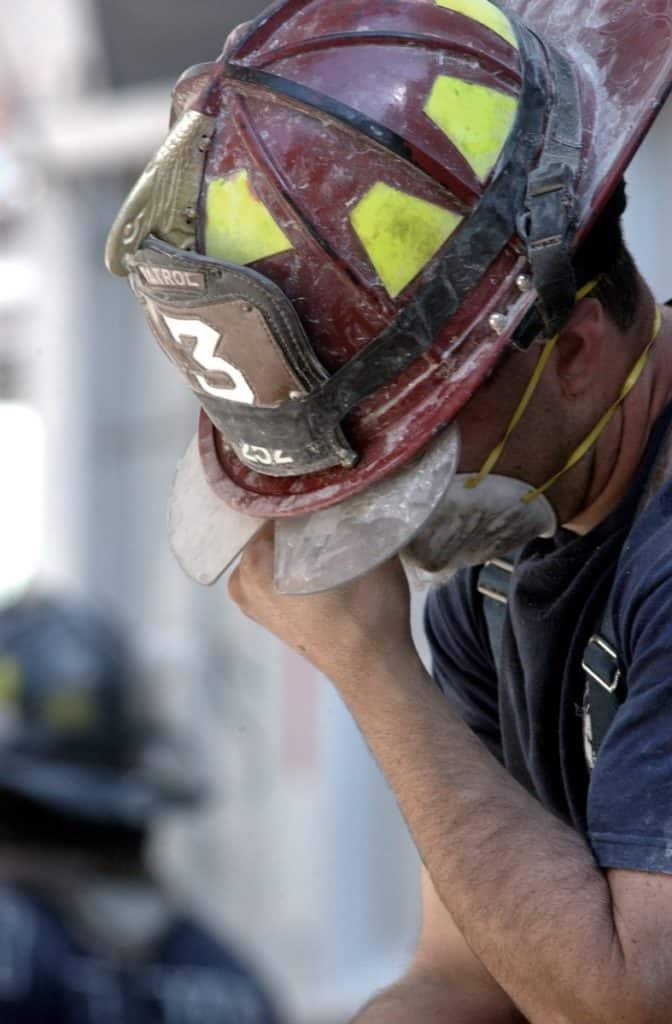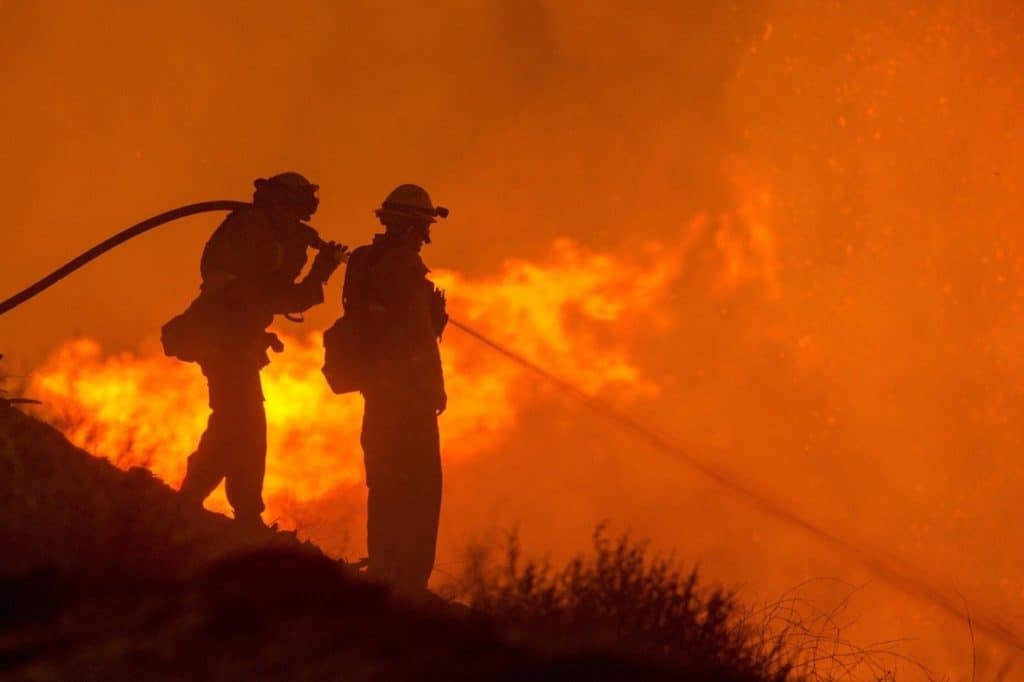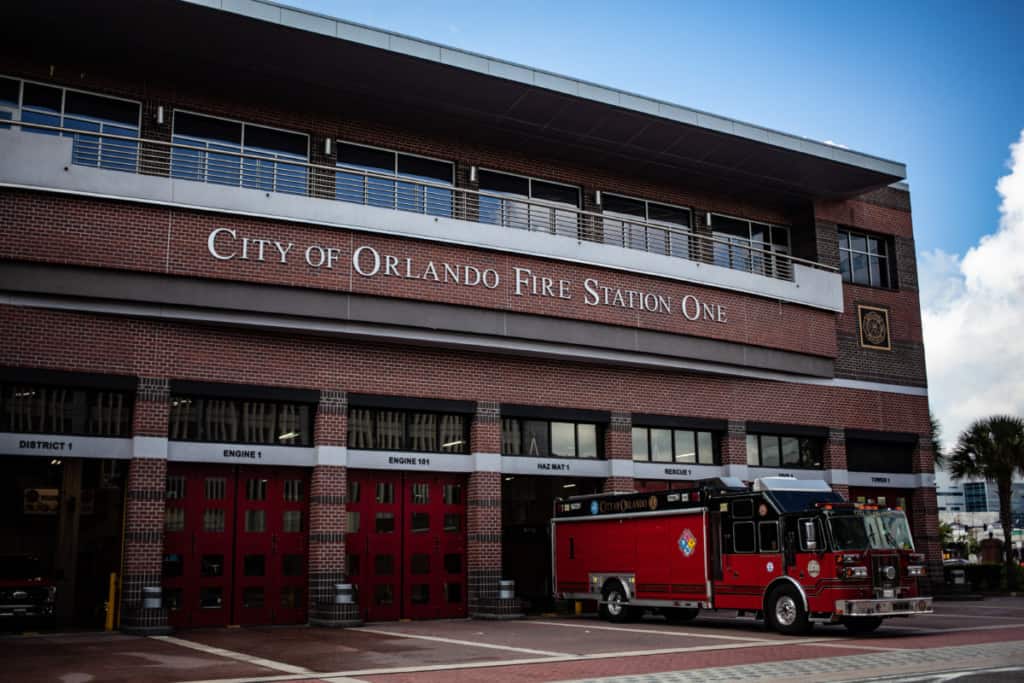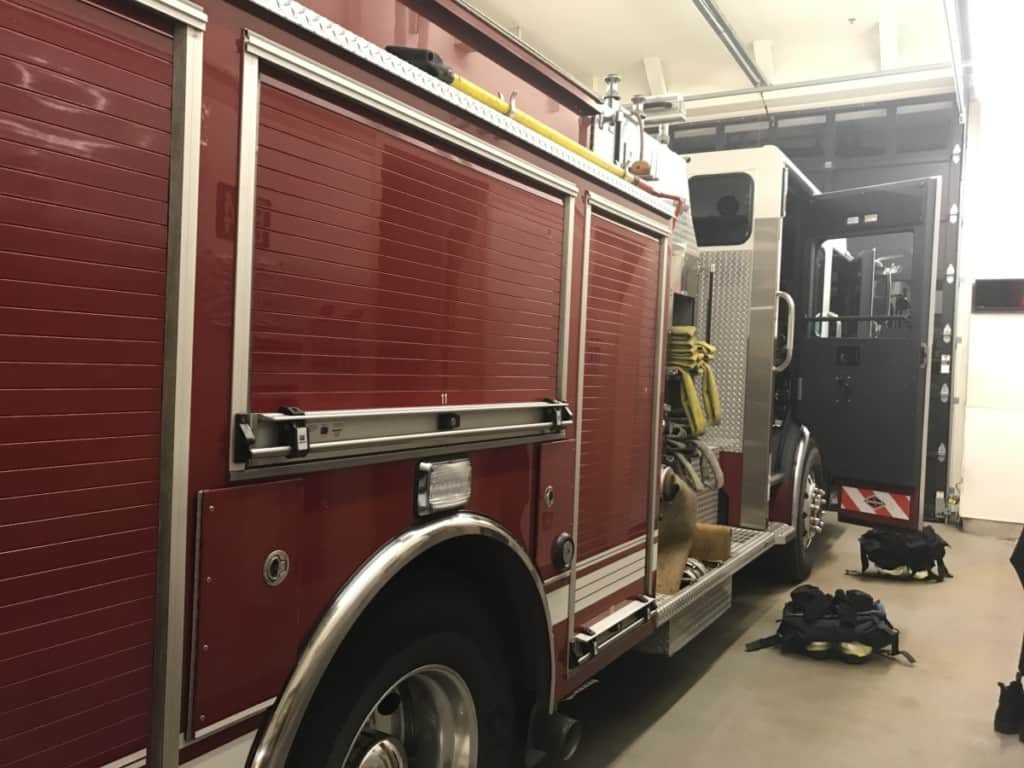You’ve probably noticed that firefighting is something of a dangerous profession. You’re probably also wondering if firefighters can be compelled to risk their lives in order to save other people or because their officer orders them to do so?
Firefighters can refuse unsafe work and it is called risk refusal. Apart from military personnel, there are no jobs in public life that require an individual to die or get injured in the line of duty. There is a specific procedure that must be followed to refuse an unsafe job.
This doesn’t mean, of course, that firefighters can just pick and choose the work that they do. If a firefighter were to refuse routine work constantly on the ground that they felt it was unsafe – they would quickly be out of a job.
So, let’s take a look at whether firefighting is a safe profession and then let’s move on to the idea of refusing unsafe work (risk refusal) and when it’s a good idea, when it’s not, and the need for change within the profession regarding this.
Your # 1 priority is keeping your family safe. As a firefighter, I recommend everyone has updated smoke detectors that don’t require battery changes, like these ones from Kidde, a fire extinguisher, like this one from Amerex, and a fire escape ladder if you have bedrooms above the first floor, I recommend this one from Hausse.
Also read: Do Firefighters Have a Shorter Life Expectancy? Firefighter Risk
What is Unsafe Work?
So, now we get to the crux of the matter. What is unsafe work? Well, this is a bit of a problem because it’s impossible for any service or agency to define all the circumstances under which work might be considered unsafe.
While health and safety inspectors have made many checklists for office work or factory work, no such list is available to firefighters because their work is so varied and every single scene they attend may have a new danger or new risk present that they’ve not encountered before.
This means that it is down to the individual and their management to identify what they believe the risks are when on a scene and what actions should be taken to mitigate those risks so that work can be conducted in, relative, safety.
Now, it is impossible – given the nature of firefighting – to foresee every single risk but those that are apparent, should be tackled effectively as part of the firefighting process.
Can Firefighters Refuse Unsafe Work?
Most of the time, the process above works well. Firefighters are, generally speaking, a “can do” group of people and their leaders are caring people who want to bring all their firefighters back home at the end of the day and in one piece.
However, there are going to be occasional moments where a firefighter and their supervisor or officer disagree over the safety of a situation. At this point, can the firefighter refuse to perform the assignment they feel is unsafe?
In fact, the only branch of service in most of the world where an individual can be ordered to ignore their personal safety is military service and even, military service leaves room for a “bottom up” initiative when an order is patently suicide.
There is no such compulsion for firefighters. A firefighter may, if they believe that the instruction they have been given puts their life at risk or the life of others at risk, refuse that instruction. They call this refusing risk.
However, there is a specific way you need to go about refusing risk. Here is some detailed information from the California Professional Firefighters and National Wildfire Coordinating Group about how to properly “turn down” an assignment.
Should Firefighters Refuse Unsafe Work?
Yes, they should. Firefighters are highly trained, highly skilled personnel. If they were not required to exercise their own judgment, they could be replaced by robots. That’s not the way it works.
If a firefighter genuinely believes that order is unsafe – they ought to refuse to comply with it. They should also identify why they think the situation is unsafe (it may be that they simply lack the experience to deal with it, for example) and offer alternative solutions or ask for an alternative approach or assistance to make things safe.
A firefighter must take personal responsibility for their safety and the safety of others.
What Happens if a Firefighter Refuses Unsafe Work?
We’ll let Anthony Ricci, from Quora, an EMS Instructor answer this:
“The simple and short answer is nothing…in California where I work, firefighters are trained and in fact required to voice their concerns, and if necessary, refuse orders if they are considered unsafe. This is not just to protect themselves but to alert others to a risk that they may not have noticed. If the perception of risk is due to ignorance on the part of the firefighter, the ordering officer may clarify the operation and explain why the operation is in fact safe. If the firefighter still feels unsafe doing the job, then there is no obligation to do it.”
That’s right. Firefighters aren’t punished for doing the right thing. In fact, it’s their job to do it.
Is Firefighting a Safe Job?
Well, it depends on what you mean by “safe”. All professions carry an element of risk and it’s certainly true that, on average, a firefighter faces substantially larger levels of risk than say a school teacher or a postal worker throughout the course of their career.
This doesn’t mean, however, that every day a firefighter is faced with life-threatening situations of massive severity, it’s unlikely that anyone could last very long in a career with that much pressure steeped on them.
So, is firefighting a safe job? Overall, it’s not as risky as you might think but it’s still not a completely safe job. Though, we’re not sure that any job is 100% safe even if you’re a cotton wool tester.
The Four Main Risks of Firefighting
So, what are the main risks that firefighters face in their work and are there ways to mitigate against these risks, while continuing to work?
We think there are four main areas of concern:
- The risk of physical injury or trauma while on the job
- The toll that stress takes on the individual following work
- The potential for PTSD in extremely unpleasant situations or dangerous situations
- The challenge to maintain a work-life balance while working shifts and unstructured schedules
So, let’s examine each, in turn, and see what’s involved and what’s done to try and prevent these risks from becoming overwhelming.
Immediate Physical Injury/Trauma
The first and foremost risk is, of course, the risk of being injured in the line of duty.
A firefighter may get burned, may suffer from smoke inhalation or the inhalation of other chemicals spilled or released in a fire, they may have structures collapse on or around them.
Firefighters who spend years in the service are at higher risks of asthma, heart and lung disease as well as cancer.
There’s also the physical toll of working such a demanding job. Years of running upstairs carrying heavy equipment, etc. can wear out joints. It’s possible that this toll won’t be noticed until years of service have passed and often, it’s too late to address the causes of the issues at this stage.
However, this doesn’t mean that these risks can’t be mitigated against.
Firefighters are expected to use a wide range of personal protective equipment which protects them from burns, cuts, abrasions. Things like self-contained breathing apparatus (SCBA) ensure that lungs can be protected from smoke and fumes.
They’re also given a ton of training to teach them how to best respond to certain situations and how to improve the safety of their position as they work.
Importantly, they are also supported by other highly-skilled and highly-trained firefighters all of whom are paying close attention to their own safety and the safety of others.
There’s a good reason that new firefighters are expected to undertake a period of probation which is constantly supervised – it’s to ensure that they have the skills necessary to manage risks appropriately and not to put themselves or their colleagues on the line without good cause.
Finally, a program of physical fitness workouts and appropriate attention to warning signs from the body and the use of properly fitting workwear can reduce the toll on the body by a large amount. This also includes yearly medical exams and blood work to monitor health.
One of the nice things about the advances in the fire service is that many of the big problems, that firefighters face, are quite well understood and can be prepared for adequately.
The Mental Toll
Alongside the physical risks are the mental risks of firefighting. Firefighters don’t just respond to fires, they also attend medical emergencies and other emergency scenes. This means that in their day-to-day work, many firefighters will regularly encounter distressing situations.
These situations often involve the death and injury of other human beings. This can lead to mental trauma.
Then, of course, there’s also the fact that your average firefighter is dealing with high-stress work while carrying out their duties. It’s easy to find that this stress starts to carry over into other parts of a firefighter’s life where it becomes detrimental to them.
There is, of course, a means for dealing with mental trauma and that is counselling.
However, not all fire departments provide the resources for firefighters to access counseling when it is needed and not all firefighters can afford to make their own provisions if their department doesn’t provide it.
A firefighter will, of course, get some support from their fellow firefighters in this respect and sometimes, some kind words or even some tough love can help.
We’d expect to see more resources made available for taking care of firefighter’s mental health in the coming years.
For example, The Houston Fire Department uses a psychologist Jana Tran Phd, to treat their firefighters need to manage stress effectively.
The Potential for PTSD

Post Traumatic Stress Disorder (PTSD) is a severe reaction to a moment of overwhelming stress. It was first diagnosed in military personnel and combat veterans, but it is just as likely to affect any individual in a high-stress job where they might encounter an incredibly traumatic experience.
It is impossible to mitigate against PTSD. It strikes different people in different ways. Different people have different triggers for it and may not manifest itself immediately after the event but turn up weeks, months or even years after the events unfold. It also may be based on cumulative events rather than a single incident.
Sufferers may find themselves with difficulty sleeping, flashbacks of the event itself, anxiety and depression. They can become withdrawn, they can lose hope, and they can become hostile, angry or destructive.
PTSD is something that must be tackled as it arises on a case-by-case basis and it will, almost certainly, require the intervention of a therapist.
The Unstable Work-Life Balance
Not every risk is obvious and, possibly, the least obvious risk to a firefighter’s safety is that of the unstable work-life balance. This is because shift working is not “normal” when compared to most other jobs.
This can mean that your partner and your children are left working a different life from you and this can cause tension and conflict within a relationship.
Sure, it might not sound as serious as being burned or seeing a horrific car accident but the reason most people go to work is to care for their loved ones. When your job is difficult for your loved ones – it can become much harder to go to work and to do your job well.
Fortunately, this risk can be resolved by proactive communication within relationships and a lot of give and take from all the parties involved. It is possible to completely eliminate the stress from this part of your firefighting life as long as you focus on what you can do and don’t dwell on what you can’t.
To learn more about firefighter work schedules, read: What Schedule Do Firefighters Work? Shift Schedules Examined
Burnout and the Risk to Safety
The US Fire Administration has noted that constant levels of stress and poor work-life balance can lead to burnout.
They have also noted that this can have a direct effect on safety at work. They see the major symptoms of burnout as exhaustion, disengagement or withdrawal and cynicism/lack of sympathy toward others.
They said that this made firefighters less likely to raise safety concerns at work, to fail to use their PPE in the correct manner and to perform their jobs safely.
America’s 10 Most Dangerous Jobs
Before you get discouraged by all this talk of risk. We’d just like to remind you that firefighter is not, currently, considered to be one of the 10 most dangerous professions in America.
They are logging workers, fishers and related workers, aircraft pilots and engineers, roofers, trash and recycling collectors, iron and steel workers, truck and sales drivers, farmers, ranchers and agricultural workers, construction work supervisors and ground maintenance workers.
The two highest risks of injury at work don’t come from professional risks according to recent figures, they come from workplace violence and from simple falls at work.
The Need for Change in the US Fire Service

This is not to say that the job of the firefighter couldn’t be safer and there are some concerns that firefighters in the United States have not, yet, quite managed to balance safety with service as well as might be hoped.
In the US Fire Administration report, “National Safety Culture Change Initiative”, this is acknowledged fully as is the need for change.
The report focuses on a need for specific cultural change throughout the service in order to promote safety in the right context to give firefighters the confidence to take action that can save their own lives as well as those of others.
It ought to be of some comfort that most firefighters who die in the line of duty, die of natural causes and not in accidents at all. In fact, heart attacks are the leading cause of firefighter deaths according to the National Fire Protection Association.
Conclusion
Can firefighters refuse unsafe work? A firefighter can refuse a specific act of work because they believe that it is not safe. They are not compelled by law to undertake a risk that they believe might result in their injury or death (unlike military personnel).
However, a firefighter should only refuse to work when it’s truly necessary. Gaining a reputation for never tackling a risky project is likely to lead to a loss of trust in them by their fellow crew members. An act of refusal every now and again is unlikely to lead to anything.
There is a recognized need with the United States Fire and Emergency Service to improve the safety record of the service when compared to other international fire fighting services, however, the exact nature of the changes required are still being worked out.
Related Articles
Can Firefighters Have 2 Jobs? Firefighter Side Hustles

